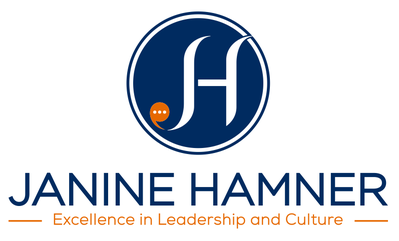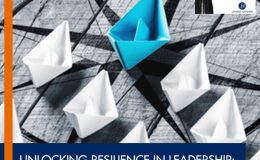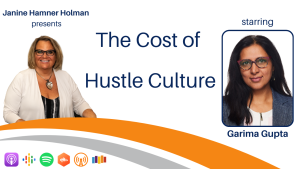
Have you been feeling the effects of burnout? Do you wonder why it’s been more prevalent, and what you can do to heal your burnout? In this episode, Janine Hamner Holman sits down with Garima Gupta, a human resource leader, to discuss the cost that hustle culture incurs for all of us.
GUEST: Garima Gupta | Dialectic, HR Takeaways
HOST: Janine Hamner Holman | [email protected] | LinkedIn, Facebook, Instagram
What am I paying attention to? It’s been a couple of weeks. The first weekend in March I was down in San Diego for the birthday party of my 90-year-old mother-in-law.

This is my 90-year-old mother-in-law, literally doing the hustle at her birthday party.
I texted a friend of mine during the party and I said, “I want to be spending my 90th birthday party dancing.”
My mother-in-law started dancing from the moment she entered the party until the moment she left about three and a half hours later. At one point the song “Do the Hustle,” which was a big hit in 1975, came on and she was literally doing the hustle.
It was great because it also connected to my experience this last weekend of me doing the hustle in a very different way. I had created a goal for myself to publish my new book no later than last Monday. That meant I was working with my editor over the weekend before, we were doing all this stuff to get the book ready. Then I spent six hours with my communications director on Monday and we got the book published, which was amazing.
Then Tuesday I had a couple of calls, got in the car, and drove from Pasadena to Fresno, and it’s been raining in California. It took about four hours to get to Fresno. The next day, Wednesday, I delivered a keynote talk and attended the conference for several hours. Then I got back in the car and drove back to Los Angeles. I got back into Los Angeles Wednesday night.
Thankfully, smartly, I had given myself the day on Thursday as a recovery day. I realized I really needed that day. While I love keynote speaking, doing this podcast, and being with people, I get my energy from being by myself. That is one of the definitions of being an introvert, that I get my energy to do what I do by being by myself.
I needed that day on Thursday to chill out and be by myself and read. I watched a little silly TV, petted my cat, and recharged my batteries.
I got to thinking about those two different experiences of doing the hustle, which is a great intro to our guest for today. I am so excited for this conversation, and I want to introduce everyone to Garima Gupta.
I’m going to start with a quote from Jane Goodall, which is “Every individual matters. Every individual has a role to play. Every individual makes a difference.” Garima’s wholehearted belief is that this saying drives her work in inclusion, equity, and diversity, and in all kinds of work she does.
She believes, as do I, that our individual voices matter, no matter how small the platform or how small the ideas. She is a human resource leader who has been working for many years across many industries and geographies. Her work has spanned India, China, Australia, sub-Saharan Africa, the US, the UK, and Central America. She has seen firsthand the difference that small voices can make.
These issues have become a high priority at a time when human resources is challenged to constantly improve employee experiences, invest in talent, and adapt to rapid change.
Garima does a lot of workshops and speaks at events on inclusion, equity, and diversity, and loves connecting with other people about their experiences. She loves helping organizations that are scaling up to rethink their culture and become more open to other cultures as they grow in countries and regions.
Welcome to the show, Garima.
Thank you, Janine. It’s a pleasure to be here talking with you on your very important topic and important podcast topic as well. I would love to share my ideas and learn from you as well.
Yes, please. I’ll go ahead and ask you, what is something you have become aware of that either consciously or not consciously we’re not paying enough attention to, and what’s the cost of that?
The biggest thing I have come to my own realization with is, when people ask you how are you these days, the answer is not, “Hey, I’m good, I’m fine, or I’m doing well.” The most common answer you will hear is, “I am so busy, I am swamped, I’m up to my eyeballs with work, kids, etc.”
Busyness these days is a badge of honor. It’s a status symbol and we all want to wear it, we all want to have that as our status. There has been lots of research and there’s a perception that if you tell people, “I’m busy, I’m doing so much,” somehow they believe you are successful, rich, famous, and so on.
On the other side you can say, “I’m having a good time, I’m taking it easy. I’ve been doing lots of reading and playing with my kids.” Then they think, “Oh, their job is not that important.” They’ll think you’re taking it easy or not making so much money. Maybe they’ll think you got laid off, but there is research to show that’s not a correlation.
That’s what I would love to talk about with you today, Janine, about what busyness is costing us. We put ourselves in that place where we keep saying, “Let’s hustle. Yeah, let’s be busy.”
That hustling you showed of your mother-in-law, that’s not the kind of hustle you’re talking about. All power to her, more power to people who want to do that kind of hustle.
It’s the other kind of hustle you were explaining, when you had the sanity to give yourself a day. Imagine if you hadn’t? What could that lead to, and what are we losing without even realizing it when we put ourselves in that grind constantly?
I love this conversation and we can all identify with this reality. When I was prepping for our conversation today, I came across this article from the Harvard Business Review. What they are talking about is exactly what you are pointing to, that we have been increasingly using our busyness and our crazy schedules as a badge of honor.
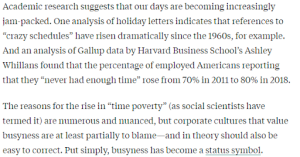
This last sentence here, simply put, “Busyness has become a status symbol.” This was the first time I had ever seen this term “time poverty.” That is a really important concept because when we think about scarcity, when we think about poverty, not enough of something, it triggers key things. I’m wondering if you can illuminate on this scarcity, not-enough-time idea, and what the impacts are of that.
There are two things I want to talk about with time poverty. One is, truly asking yourself if you’re poor in time or are you poor in time management or prioritization. When we say we don’t have time for this, then it means it’s not a priority.
Whether it’s a basketball game, a kid reciting a poem they wrote, or the book we haven’t read, it’s about what we’ve prioritized. More often than not, we find that human nature is to go with the easiest thing possible.
The easiest thing these days is our smartphones which we’re addicted to, where it’s easy to scroll, look at Facebook, keep on scrolling on Instagram reels, or look at emails that aren’t all that important, and don’t require an immediate response. You can answer it on Monday, but you will respond to it and make yourself feel as though you did something.
We all want to be in that place where we feel like we did something. One of the concepts we’re all trying to learn, even in our performance management at work is: what is the impact? What is the impact of what you’re doing? If you’ve had a busy day and you were to write down what you achieved that day, what did you get out of it, what is the one thing you did that was productive? Oftentimes we will find that we can write down that list of activities we did, but then when you come to writing the impact, it’s all head scratches.
That’s what happens in a lot of organizations when people are writing their performance reviews, “I woke up so early, I was attending meetings still so late.” Then what did you achieve by that in the year, quarter, or week? That’s where people are stumped. They say, “I didn’t achieve anything but I was so busy, I spent all of my time at work. What else do you want me to do? How do you think I’m working 70 hours a week? How many more hours do you need from me?” The answer is, it’s not about more hours. Maybe you do four hours of work every day, but then what’s the achievement?
Stephen Covey showed us this quadrant, outlining “What is urgent, what is important, what is not important, what is not urgent.”
Our understanding of the urgent and the important is often not so clear. That line is so thin that we forget. That’s where this concept of time poverty then comes in, where we think, “Oh my God, I have no time to read a book. I have no time to smell the roses and stop and look at all things important.” It’s because we are not giving ourselves time.
We are making ourselves time poor. It’s not work, it’s not somebody else. Oftentimes we need to look inwards and not have the finger pointed at somebody else because three fingers are pointing right back at us to say, “What have you done?”
It’s hard to take it in. When somebody pointed this out to me, my response was, “No, no, what are you talking about? I have a large meeting, I manage so many people and all my time is going in the one-on-one and the coaching.”
In truth, I was getting in the busyness and keeping the hustle on so my colleagues, boss, and everybody thought I was busy. At the end of the day, what do I have to show for it? That is the time poverty concept, at least how I understand it.
I love all the different things you’re pointing toward. I was on the phone with a client earlier today and she was talking about the organization she leads and her challenge with: “I have some folks who are high up in the organization who were able to go and play golf and do these things. Why am I not able to do these things?”
My response was, the person who says you’re not able to do it is you.
Another example is, for years I wanted to learn how to scuba dive and I decided I would spend the time, energy, and money when I was going somewhere that I could dive. The year before I finally realized I was being stupid, I was in Hawaii, and then Mexico on the coast.
I realized, we never actually have enough time or money. It’s all about how we choose to prioritize, make decisions, and spend our time and money. I live in Los Angeles, 14 miles from the ocean. Right off our coast is Catalina Island, which is surrounded by the world’s largest kelp forest where there are lots of fish. Basically, I am in prime scuba diving territory all the time.
For my 40th birthday, I signed up and learned how to scuba dive. It was one of the greatest things I ever did for myself. It reinforced an idea I talk about with organizations all the time. They’ll say, “We really need to focus on employee engagement, emotional intelligence, or diversity, but we just don’t have the money for it.”
I’ll say, show me your budget and I’ll show you what your priorities are. We spend money and time on the things we have decided we care about. If we decide we care about something else, then we reallocate. That’s the way it works.
We have all fallen into this, “Being busy means I am keeping up with the Joneses, I am worthy, I am a good person, I have an important job, I am making contributions.” We’ve collapsed these two things that actually have nothing to do with one another because we can be incredibly busy and get absolutely nothing done and make no contributions to society at all.
Our opportunity is to decouple these concepts and figure out, “What do I care about? What does matter to me? How do I prioritize that?”
In preparing for this interview, I came across this article about the impact of our busy culture. I was intrigued by the way they broke down the impact on emotional health.
It starts with, we’re stressed, overwhelmed, sad, frustrated, and lonely. We feel incompetent and guilty about the things we’re not doing.
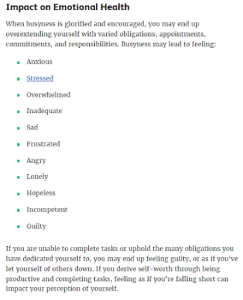
Then there’s the impact on physical health: muscle tension, restlessness, insomnia, headaches, inflammation, fatigue, changes in our sex drive, digestion issues, cardiovascular issues, and a compromised immune function, which is incredibly important especially with COVID-19.
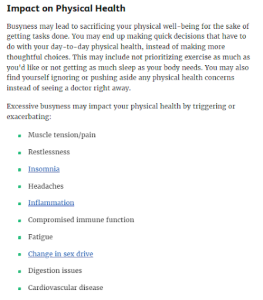
When we think about the impact on our emotional and physical health for buying into this busyness culture, I wanted to get your take on that. Then I want us to talk about what we can do about it.
First, I would say, for physical health, mental health, spiritual health, even financial health, it impacts everything. When you are busy and not paying attention, there is a lot of cost.
Here’s an example. I was talking to a friend of mine. She’s very successful in her career. You name it, she’s done it. She’s published a book, does lots of keynote speaking, and she’s a very senior executive in a multinational firm. She and I were talking about all these layoffs and how this is impacting people. We are both in HR, so we worry about what happens to people.
She was telling me that from the last three years, since COVID-19, she hasn’t been able to take meaningful time off. She’s taken a day off here and there. At the end of last year she decided to leave her job, which was very precious to her. She’d worked hard to get to it and she was doing really well. She’s won some awards.
She quit though, because she said, “My cup is so empty, Garima, that I have nothing to give.”
That is a cost. If you empty your cup so much by giving and hustling, you will find yourself with nothing to give, which is another type of poverty. That leads to burnout, stress, and anxiety, which leads to heart disease, cardiovascular problems, and all of those issues.
Those are the underlying costs which are happening. We learned about the word burnout so much in the last couple of years during the pandemic. It started with burnout, then quiet quitting and all of those other terms started coming up. People were discovering, “Oh, I’m burning out. I’ve given as much as possible and therefore I have nothing left to give. I’ll quiet quit, or let me quit.”
What is happening with a lot of people is, you realize the impact to your health once it is already impacted. It’s not when you are in it, but once you are far away and you’ve already been impacted by burnout or stress, or work doesn’t seem interesting anymore. The same work you were hustling for is the one that’s going to burn you out so much because you are not dividing the urgent, important, and non-important.
You’re not dividing your time equally so you are able to give your family life enough time and be able to take that rest. Rest is not a reward.
Nature has made our body where we are awake for 12 hours and we are asleep for 10 to 12 hours. That is how nature designed us. Who are we to then say, “No, let’s hustle, let’s only sleep for four hours.”
There have been a lot of studies about teenagers who are waking up very early and going to high school early. There has been a lot of conversation about making sure teenagers have enough time to sleep. When they sleep, that’s when they grow both mentally and physically.
The same applies to us, as our bodies are aging, taking on more, and learning more. If we don’t give it rest, they’re not ready to be recuperated and work with the same energy as we are required to. If you hadn’t taken that rest on Thursday, would you feel you were able to give so much of yourself on Friday?
Absolutely not.
That is the crux of all of this, we need to give ourselves space. When we say give space to others, we need to be doing it for ourselves. I’m going to make a call out for HR professionals for sure, because we preach well, but we don’t practice it.
There’s an article in the Harvard Business Review about burnout. In it, they realized that organizations who talk about the importance of a work-life balance or work-life harmony are often doing a bad job at walking that talk. They’re, “Struggling to live that value.”
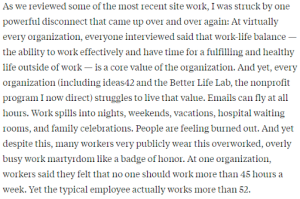
At some level we are aware, especially through the pandemic, of this idea of work-life balance and work-life harmony. So many people have been working more because working from home has become really important. In that situation, how do we create effective boundaries?
Right now it is still countercultural to say, “I need time, I need to recover, I need to take a vacation, I need time off. I need to sleep more than three or four hours a night.” How do we start creating that for ourselves and for our organizations?
One thing I learned last year was that self-care leads to more than better outcomes for mental health and reducing burnout. Organizations and systems play a very big role. Going back to that article, it’s one thing for me to say, “I want to take time or a vacation, I’ve done enough, I want to go away.”
It’s another thing for my boss or manager to respond, “No, no, no, we have three more priorities to get out before the end of the year, because I promised the CEO.” When we talk about prioritization and not understanding the issue of important versus urgent, the same goes for leaders.
They’re not different. They are made of the same cloth. For them, what I see in a lot of companies, especially tech organizations, the hustle of being first, being the largest, getting to IPO, or going beyond IPO includes this constant pressure of doing so much. It’s embedded in the culture. It is rewarded.
It could be rewarded with you being named as a high performer, or you getting an extra bonus, larger salary, or meaty project. What we reward is what we continue to see. I absolutely agree with the point that self-help or self-care can only take you so far. Then there is a system angle to it.
However, I also believe I can only change what’s in my control. I can affect my team as a leader. I can impact myself as the leader of my family. That’s why today’s conversation is less about the system. Yes, the systems need to change. I would say that is a separate conversation.
That will be part two.
Today what I’m talking about is that the individual has some blame to take as well. The individual has agency. That agency is what we can use to ask, “What can I cut?” You have to start somewhere. If there is so much clutter around you, then you have to say, “Okay, this piece on my left side, I’m going to fix that first and then come to the right side.”
It’s about “What can you do today? What can you do, which is in your control to be able to get some of that back.” The fact of the matter is, if you were in the hospital tomorrow because of this cardiovascular disease, because of that stress, burnout, and anxiety, nobody from your office is going to come and give you a pot of soup. Maybe they come one day and send you food service and flowers, but that’s about all the care you’ll get.
They cannot care and they will not care anymore. No matter how empathetic the organization or leader is, the fact of the matter is, who will bear the brunt of it? It is your family and it is you. That is where you need to focus.
The reality is that the organization is not going to fall apart if you are in the hospital. That work is either going to get done or it’s not going to get done.
Somebody else is going to have that heart attack because they take on all your work.
Part of what’s so funny and interesting to me about this idea of perpetual busyness we have created is that when we do take a break, when we do stop, when we do step back, we’re not actually all that important.
We don’t know what to do with ourselves. I don’t know about you, but initially when I took some time off and the kids were at school, my husband was working, and I had this couple of days off that I had forced myself to take, I wondered, “What should I do with myself?” I made a long list. I should read this book, call five friends, write four emails, book myself on two podcasts, and write two. Otherwise I would end up looking at my phone, on Instagram or Facebook.
This cost has led to us not knowing what to do with ourselves, because our mind now needs to be constantly engaged. We used to say that kids who have a short attention span could lead to not great outcomes. They might be diagnosed with ADHD. ADHD has become so common now, and I’m not a doctor or psychologist, but I would say we all feel like that right now.
If you don’t look at your phone for, I don’t know, a couple of hours, try it.
We have this need to look at it. Enough studies have come out saying the same parts of your brain light up as when you do some drugs. It’s like an addiction that we, as a society, culture, country, and across the globe, we’ve all become so used to. We are so distracted all of the time. That’s why all these meditation apps have become so popular because they’re preaching “We’ll give you a mindful moment.”
The reality is, you can have a mindful moment if you keep that screen away. If you look at whoever that real person is in front of you and have a real conversation without bending to look down at your phone five times. That is the crux of it.
That is my message today: do what’s in your control, you can’t fix the system all on its own unless you are the CEO of the company. But I do believe there’s something you can do for yourself so you get some time back, so you don’t experience time poverty.
I love that. I was thinking about myself standing in line at the grocery store, and I find myself pulling out my phone to distract myself because I am bored standing in line for five minutes.
What has happened to our ability to just stand in line and have a conversation with somebody, or think about something? We have hooked ourselves on this drug, on this constant need for distraction and this myth of the importance of busyness. Our opportunity is to break ourselves of that, both of that habit and myth.
Sports coaches will tell you that when you are mindful and present, that’s when you give your peak performance. That’s why athletes take the pause before they throw the ball or make the jump. It is to center yourself. It is to give yourself that breath that aligns you with your body.
This is not mumbo jumbo. This is not from yoga, “Oh my God, those deep breaths, I don’t need them.” The fact is, if we don’t breathe properly, then our body doesn’t work the way it should. It’s scientifically proven to give you that moment which makes you feel present, which makes you realize what’s going on.
The thing I love about thinking about breath is that when we get hijacked, triggered, and upset, often, depending upon the thing that’s hijacking or triggering us, what can happen is we get thrown into our amygdala, into our fight, flight, freeze zone. The thing that gets us out of it the quickest and easiest is taking a deep breath. It resets our brain because our brain realizes “If I’m able to breathe deeply, I’m not actually running from a sabertooth tiger.”
That part of our brain, our amygdala, which is way back underneath the bottom of our skull, it was formed before we had speech. It does not know that it is 2023 and the sabertooth tiger dangers are over. When we get freaked out, tensed up, afraid, overstimulated, which we can be doing with just using things like our phone or going into YouTube tunnels… I was in a big YouTube tunnel last night and I suddenly realized, “Oh my gosh, I should have been in bed 45 minutes ago.”
I’d watched lots of things that made me laugh and smile. What I needed to be doing was getting ready for sleep. What I was doing instead was distracting myself with James Corden, which was fun, but not productive.
When we take that deep breath, we return our brain to our prefrontal cortex, which is where we can think and have conscious thought.
There is nothing mumbo jumbo about the importance of breath and deep breath.
As we start wrapping up for today, is there anything you are hoping we might have an opportunity to touch on that we haven’t yet? Or, is there a place where you would like to leave our readers?
I’ll leave people with this: hustle culture is a big issue. It’s not going to get solved in five minutes, but if you are in a room full of clutter, you start somewhere. Start somewhere small. Maybe the phone is the easiest thing to do. If right now the phone report says you’ve watched your phone for three hours, of which two hours was Instagram, maybe you reduce your Instagram watching time by 15 minutes. Use that time instead to go for a walk, read a real book, or sit down, do nothing, and give yourself that space.
Start small. Start by five, 10, or 15 minutes. If it makes you feel good, do more. I always say, start somewhere. Not starting is not an option.
Garima, thank you so much for your perspective, your wisdom, and your deep understanding of this challenge we are all in. You’ve given us some easy places to get started. Because not getting started, as you said, is not an option.
I so appreciate you being here with us today.
Thank you, Janine. Thanks for having me. Appreciate it as well.
I am Janine Hammer Holman, and this has been The Cost of Not Paying Attention. Remember, great leaders make great teams. Until next time.
Important Links
About Garima Gupta
Garima bases her work with a quote from Jane Goodall, which is “Every individual matters. Every individual has a role to play. Every individual makes a difference.” Garima’s wholehearted belief is that this saying drives her work in inclusion, equity, and diversity, and in all kinds of work she does.
She believes our individual voices matter, no matter how small the platform or how small the ideas. She is a human resource leader working for many years across many industries and geographies. Her work has spanned India, China, Australia, sub-Saharan Africa, the US, the UK, and Central America. She has seen firsthand the difference that small voices can make.
These issues have become a high priority at a time when human resources is challenged to constantly improve employee experiences, invest in talent, and adapt to rapid change.
Garima does a lot of workshops and speaks at events on inclusion, equity, and diversity, and loves connecting with other people about their experiences. She loves helping organizations that are scaling up to rethink their culture and become more open to other cultures as they grow in countries and regions.
